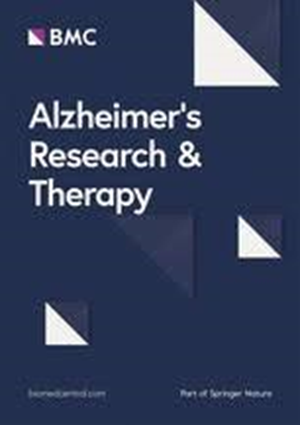Digital remote assessment of speech acoustics in cognitively unimpaired adults: feasibility, reliability and associations with amyloid pathology
IF 7.9
1区 医学
Q1 CLINICAL NEUROLOGY
引用次数: 0
Abstract
Digital speech assessment has potential relevance in the earliest, preclinical stages of Alzheimer’s disease (AD). We evaluated the feasibility, test-retest reliability, and association with AD-related amyloid-beta (Aβ) pathology of speech acoustics measured over multiple assessments in a remote setting. Fifty cognitively unimpaired adults (Age 68 ± 6.2 years, 58% female, 46% Aβ-positive) completed remote, tablet-based speech assessments (i.e., picture description, journal-prompt storytelling, verbal fluency tasks) for five days. The testing paradigm was repeated after 2–3 weeks. Acoustic speech features were automatically extracted from the voice recordings, and mean scores were calculated over the 5-day period. We assessed feasibility by adherence rates and usability ratings on the System Usability Scale (SUS) questionnaire. Test-retest reliability was examined with intraclass correlation coefficients (ICCs). We investigated the associations between acoustic features and Aβ-pathology, using linear regression models, adjusted for age, sex and education. The speech assessment was feasible, indicated by 91.6% adherence and usability scores of 86.0 ± 9.9. High reliability (ICC ≥ 0.75) was found across averaged speech samples. Aβ-positive individuals displayed a higher pause-to-word ratio in picture description (B = -0.05, p = 0.040) and journal-prompt storytelling (B = -0.07, p = 0.032) than Aβ-negative individuals, although this effect lost significance after correction for multiple testing. Our findings support the feasibility and reliability of multi-day remote assessment of speech acoustics in cognitively unimpaired individuals with and without Aβ-pathology, which lays the foundation for the use of speech biomarkers in the context of early AD.对认知能力未受损成年人的语音声学进行数字远程评估:可行性、可靠性以及与淀粉样变性病理的关系
数字语音评估对阿尔茨海默病(AD)的早期临床前阶段具有潜在意义。我们评估了在远程环境中通过多次评估测量语音声学的可行性、重测可靠性以及与阿尔茨海默病相关的淀粉样β(Aβ)病理学的关联。50 名认知能力未受损的成年人(年龄为 68 ± 6.2 岁,58% 为女性,46% 为 Aβ 阳性)完成了为期五天的基于平板电脑的远程语音评估(即图片描述、日记提示讲故事、语言流畅性任务)。测试范式在 2-3 周后重复进行。从录音中自动提取语音声学特征,并计算 5 天内的平均得分。我们通过坚持率和系统可用性量表(SUS)问卷的可用性评分来评估可行性。通过类内相关系数 (ICC) 检验了测试-再测试的可靠性。我们使用线性回归模型研究了声学特征与 Aβ 病理学之间的关联,并对年龄、性别和教育程度进行了调整。语音评估是可行的,符合率为 91.6%,可用性评分为 86.0 ± 9.9。平均语音样本的可靠性很高(ICC ≥ 0.75)。与 Aβ 阴性个体相比,Aβ 阳性个体在图片描述(B = -0.05,p = 0.040)和日记提示讲故事(B = -0.07,p = 0.032)中显示出更高的停顿与单词比,尽管这一效应在多重测试校正后失去了显著性。我们的研究结果表明,在认知功能未受损的Aβ病理和Aβ病理阴性个体中进行多日语音声学远程评估是可行和可靠的,这为在早期AD背景下使用语音生物标志物奠定了基础。
本文章由计算机程序翻译,如有差异,请以英文原文为准。
求助全文
约1分钟内获得全文
求助全文
来源期刊

Alzheimer's Research & Therapy
医学-神经病学
CiteScore
13.10
自引率
3.30%
发文量
172
审稿时长
>12 weeks
期刊介绍:
Alzheimer's Research & Therapy is an international peer-reviewed journal that focuses on translational research into Alzheimer's disease and other neurodegenerative diseases. It publishes open-access basic research, clinical trials, drug discovery and development studies, and epidemiologic studies. The journal also includes reviews, viewpoints, commentaries, debates, and reports. All articles published in Alzheimer's Research & Therapy are included in several reputable databases such as CAS, Current contents, DOAJ, Embase, Journal Citation Reports/Science Edition, MEDLINE, PubMed, PubMed Central, Science Citation Index Expanded (Web of Science) and Scopus.
 求助内容:
求助内容: 应助结果提醒方式:
应助结果提醒方式:


